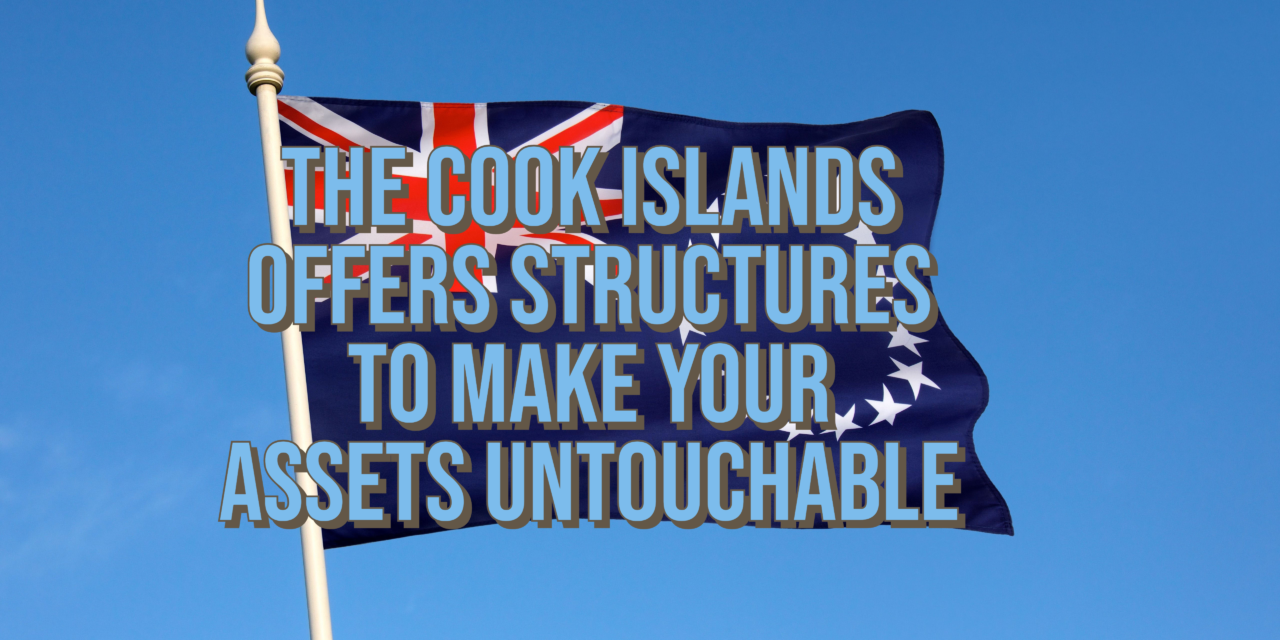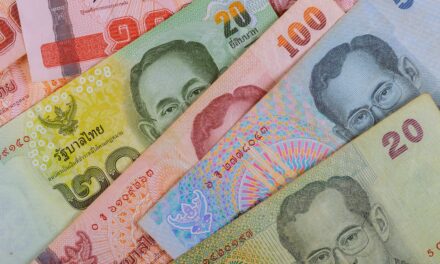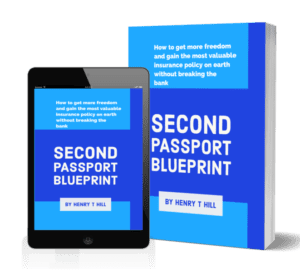Cook Island Trusts are a special vehicle used to protect assets from litigation. Cook Island Trusts have been used successfully for years to shield the wealth of the rich from predators.
COOK ISLAND TRUSTS AND THEIR USES
The Cook Islands are a group of 15 small islands located in the South Pacific Ocean. These islands have a reputation as a leading jurisdiction for the creation of trusts. A trust is a legal arrangement in which one person (the settlor) transfers ownership of their assets to another person (the trustee) to hold and manage for the benefit of a third person (the beneficiary).
Trusts are commonly used for a variety of purposes, including wealth management and asset protection. Cook Island Trusts are particularly popular for the latter purpose. The country’s laws provide strong protections for trust assets from creditors and other potential claimants.
One of the key features of Cook Islands trusts is their perpetual duration. Unlike many other jurisdictions, where trusts are subject to a maximum duration of 100 or 120 years, Cook Islands trusts have no fixed term of expiration. This means that trust assets can be held and managed for the benefit of future generations, providing a way to protect and preserve family wealth over the long term.
Another important aspect of Cook Island trusts is their confidentiality. The country’s trust laws include strict confidentiality provisions that prevent the disclosure of information about the trust, its assets, and its beneficiaries, except in limited circumstances. This means that the details of Cook Islands trusts can remain private, providing an additional layer of protection for the trust assets and the beneficiaries.
In addition to providing asset protection and confidentiality, Cook Islands trusts are also useful for estate planning purposes. For example, a settlor could use a trust to distribute their assets to their beneficiaries in a way that minimizes taxes and other costs. The trust can also be used to manage the assets for the benefit of beneficiaries who are too young or otherwise unable to manage the assets themselves.
HOW COOK ISLAND TRUSTS ARE USED
One example of how a Cook Islands trust might be used is for the purpose of protecting the assets of a wealthy individual from creditors. Suppose that a person has significant assets, including real estate, investments, and other valuable property. If this person were to become the target of a lawsuit, their assets could be at risk of being seized by creditors in order to satisfy any judgment that might be awarded against them.
By transferring ownership of their assets to a Cook Islands trust, the individual can effectively shield their assets from creditors. The trustee, who is appointed by the settlor, would have the legal authority to manage and distribute the assets in accordance with the terms of the trust. The creditors would have no legal right to access the trust assets, even if they obtained a judgment against the settlor.
Another example of how a Cook Islands trust might be used is for estate planning purposes. Suppose that a person has a large and complex estate, including various assets such as real estate, investments, and personal property. This person may want to ensure that their assets are distributed to their beneficiaries in the most efficient and tax-advantaged manner possible.
A Cook Islands trust can be used to manage and distribute the assets of the estate in accordance with the settlor’s wishes. The trust can be structured in a way that minimizes taxes and other costs, such as probate fees and other expenses that can eat into the value of the estate. The trust can also be used to manage the assets for the benefit of beneficiaries who are minors or otherwise unable to manage the assets themselves.
In addition to these uses, Cook Islands trusts are also commonly used for charitable purposes. A settlor can use a trust to donate assets to a charity or charitable organization, with the trustee managing the assets on behalf of the charity. This can provide a way for the settlor to support a cause they believe in, while also receiving tax benefits and other advantages.
Overall, Cook Islands trusts are a useful tool for a variety of purposes, including asset protection.
PRIVACY IS A KEY FEATURE OF COOK ISLAND TRUSTS
In addition to the uses mentioned above, Cook Island trusts are also often used for privacy and confidentiality. These trusts can be structured in such a way as to protect the identity of the trustor, trustee, and beneficiary. This is possible because the Cook Islands have strict confidentiality laws that protect the information contained in trusts.
Furthermore, Cook Islands trusts are highly customizable and can be tailored to fit a person’s specific needs and goals. For example, a trust can be set up to last for a specific period of time, such as 20 years, or it can be designed to continue indefinitely. Additionally, the trust can be structured to provide for the distribution of assets to beneficiaries in a variety of ways, such as in lump sums or in installments.
One of the key advantages of Cook Islands trusts is that they are governed by the laws of the Cook Islands, which are considered to be among the most favorable in the world for trusts. The Cook Islands have a modern and sophisticated trust law that is based on the laws of New Zealand. This legal framework provides a high level of protection for trusts and the assets they hold.
Another advantage of Cook Islands trusts is that they are highly flexible and can be used in a variety of situations. For example, a trust can be used to hold a wide range of assets, including stocks, bonds, real estate, and cash. Additionally, a trust can be used to hold assets for the benefit of multiple beneficiaries, such as a person’s children and grandchildren.
In summary, Cook Islands trusts are a versatile and powerful financial tool that can be used for asset protection, estate planning, tax avoidance, and more. These trusts offer a high level of flexibility and are governed by favorable laws that provide strong protections for trusts and their assets.
COOK ISLAND TRUSTS ARE OFF THE RADAR

International regulators have been cracking down on tax havens, offshore banks, and their customers, but they have largely ignored the Cook Islands. Despite this, Americans are the biggest users of Cook Island trusts, which are only available to non-residents of the Cook Islands. The Cook Islands’ official website promotes the country as a “prime choice” for “discerning wealthy clients.” There are currently just under 4,000 trusts in the Cook Islands, according to the Cook Islands’ Financial Supervisory Commission, offering anonymity and legal protections. The value of the assets held in these trusts is not disclosed, and it is illegal in the Cook Islands to reveal the owners of trusts or to provide any information about them.
The International Consortium of Investigative Journalists obtained a cache of documents back in 2013 that revealed the owners of approximately 700 Cook Islands trusts. This information was among 2.5 million documents containing information about offshore havens around the world. Earlier this year, the release of some of these documents caused an international scandal by disclosing the names of tax-averse companies and government officials.
WEALTHY US RESIDENTS ARE THE BIGGEST USERS OR COOK ISLAND TRUSTS
A close examination of the Cook Islands documents by The New York Times and the International Consortium shows that these trusts are popular among the wealthy in Palm Beach, New York, and Hollywood. The trust owners include individuals who have been convicted of Medicaid fraud, Ponzi schemes, and embezzling employee pension funds. Many other owners are simply wealthy.
According to the documents obtained by the International Consortium of Investigative Journalists, Denise Rich, the former wife of the late convicted trader Marc Rich, holds a Cook Islands trust containing more than $100 million in assets, including a yacht, a Learjet, and a Swiss bank account. Additionally, the Cordish family of Baltimore, owners of one of the largest privately held real estate conglomerates in the US, have more than $116 million in assets held in Cook Islands trusts.
Cook Islands trusts offer both security and secrecy, according to officials. “Asset protection is to provide a layer of insurance for something that cannot be insured – the unforeseeable,” said Jennifer A. Davis, the CEO of the Cook Islands Financial Services Development Authority. While there is nothing illegal about establishing a Cook Islands trust, putting assets into one does not exempt the owner from paying taxes on the earnings of those assets.
However, Cook Islands trusts are popular among those who believe they may be sued in the future, such as doctors facing malpractice claims, businessmen avoiding creditors, and some who have been sued by the US government. Critics of Cook Islands trusts argue that they undermine the principles of the American legal system, which holds individuals accountable for their actions.
THE US GOVERNMENT UNABLE TO PENETRATE COOK ISLAND TRUSTS
The Federal Trade Commission has also been unable to collect on a judgment. In 2007, the FTC won a $37.5 million judgment against Kevin Trudeau for “airing blatantly deceptive infomercials” for his diet book “The Weight Loss Cure”, but has not collected any money yet. Trudeau, who lives in Chicago, was jailed for contempt for refusing to testify about his Cook Islands trust and other offshore accounts. The government claims that Trudeau “uses sophisticated asset-protection devices designed to defeat the jurisdiction of American courts.”
It is estimated that Americans have approximately $1 trillion in offshore accounts around the world, and the US government has started to take notice. However, the Cook Islands, a self-governing state associated with New Zealand, have not received much attention from American regulators or legislators, possibly because they are not frequently used by multinational corporations to avoid paying taxes and have not been linked to terrorist financing or money laundering.
In 2001, Robert T. Harvey established the “Lo-Ry Principle International Trust”, which contained $1.2 million by 2004. This is the same year, according to the Securities and Exchange Commission, that Harvey helped orchestrate a Ponzi scheme that defrauded investors of $52 million over the next two years. In 2010, Harvey was permanently barred from the securities industry. A lawyer representing him stated that he was not aware that Harvey had a Cook Islands trust, which he closed in 2007. His victims were also unaware of the trust.
Lawyers who arrange Cook Islands trusts view them as a negotiating tool: if litigation arises, many creditors will settle for a fraction of what is owed, rather than face the expense of a lengthy and difficult lawsuit in the Cook Islands.
“You are paying a small amount to stop the madness,” said Jeffrey M. Verdon, a lawyer in Newport Beach, California who sets up Cook Islands trusts. Verdon stated that he settled a $78 million judgment for $7 million and a $5 million judgment for $100,000. Since settlements are private, these numbers could not be verified.
TRUST ASSETS CAN’T BE MOVED UNDER DURESS
Cook Islands Trusts can sometimes have negative consequences for their owners. This happened in the case of Gregory M. Bell, who was released last month after serving four years in federal prison for his involvement in a $3.5 billion Ponzi scheme. Because Bell, who lived in suburban Chicago, was born in Russia and had a Cook Islands trust, the courts considered him a flight risk. He was jailed for 14 months and denied bail. Cook Islands law prevents trust assets from being moved under duress, so Bell was unable to use the $15 million in his Cook Islands trust to settle with the SEC.
CONCLUSION
Cook Island trusts are a key tool for asset protection. Once assets have been in a trust for 2 years the trust can’t be unwound. No matter where the assets came from. The strong privacy and asset protection features of Cook Island Trusts make the a tool worth considering for anyone with assets.
Bullet Proof Asset Protection – How to Make Your Assets Untouchable in 2023
Cook Islands Financial Services Commission
Get in touch with Liberty Mundo to set up your Cook Island Trusts using the form below:











